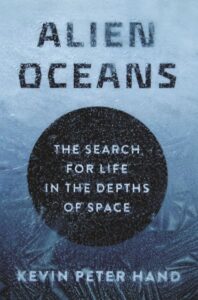 I’m not exactly certain how it happened, but recently I’ve found myself particularly interested in astrobiology – the study of life in the universe. It’s not exactly a new interest of mine; just one that has long been a bit dormant for the past few decades. I suspect it was awakened by my finally obtaining a copy of the new 5th edition of Life in the Universe that was made possible by a particularly attractive book sale that Princeton University Press held not long ago.
I’m not exactly certain how it happened, but recently I’ve found myself particularly interested in astrobiology – the study of life in the universe. It’s not exactly a new interest of mine; just one that has long been a bit dormant for the past few decades. I suspect it was awakened by my finally obtaining a copy of the new 5th edition of Life in the Universe that was made possible by a particularly attractive book sale that Princeton University Press held not long ago.
Therefore, not surprisingly, my mind was primed and receptive for a recent note on Princeton’s social media channels pointing out that in addition to both hardcover and paperback editions of Dr. Kevin Peter Hand‘s 2020 published book Alien Oceans; the Search for Life in the Depths of Space, they also have the book available in audio format, unabridged and read by the author, through their Princeton Audio imprint.
For those not already familiar with the subject, Dr. Hand’s presentation of it is superb. Beginning with a presentation of how oceans work on Earth, he transitions to a remarkably clear explanation of important concepts in optics, chemistry, and physics that are necessary for the reader to understand prior to delving into how oceans potentially capable of harboring life as we are able to understand it might exist on other planets and planetary moons. Not only are his explanations in print clear and easy to follow, they are also such in his reading of them in the audio version (and I don’t think I need to over-emphasize what a particularly high level of skill as a writer is required to make such topics able to be followed in a purely audio presentation).
If you’ve ever found yourself wondering what might be “out there” when you look up at the night sky, and particularly how we can know about it with our present levels of technology, Alien Oceans is a delightful way to open the door to the discoveries that have already been made in this area of research as well as what questions are seeking to be answered now and what aspirations researchers have for the future.
Nota bene: If you’d like to get a little more general information on astrobiology as a field of study, NASA has (not surprisingly) a very interesting website devoted to it, as does the University of Washington.
If you enjoyed reading this, please consider signing up for The Well-read Naturalist's newsletter. You'll receive a helpful list of recently published reviews, short essays, and notes about books in your e-mail inbox once each fortnight.
